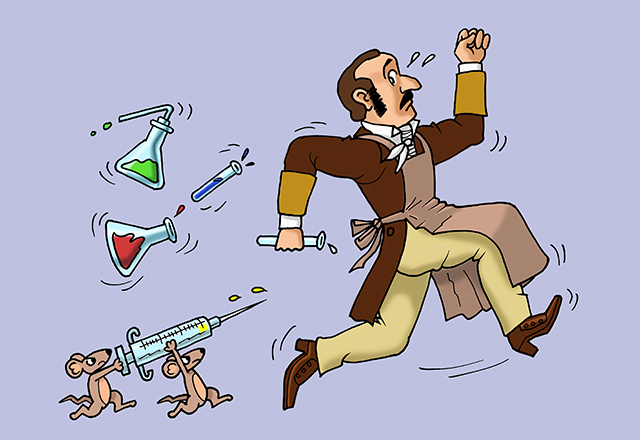As a college student, I had set my sights on making a difference in the research world. I was ecstatic when I was accepted to Johns Hopkins to pursue my graduate degree. However, starting graduate school was difficult for me. I felt constantly behind everyone around me, and it was clear that I was slowly becoming plagued with imposter syndrome — a phenomenon that targets everyone regardless of race, sex or career path. It’s that constant voice in the back of your mind telling you that you are a fraud and don’t belong where you are. All of your successes become attributed to luck and your failures become attributed to lack of competence. Looking back, I wish someone had told me that this would be my greatest obstacle to overcome. Science itself is hard, but when it’s accompanied by personality differences, the variations in progress among peers and the all-consuming nature of science, feelings of inadequacy come as no surprise. As time went by, I felt suffocated by science. Worse, I felt that I had to cope alone. Because many of my peers constantly appeared happy and excited about their projects, I started to wonder if there was something wrong with me. Was science not right for me? Why was I not as excited as my peers? These thoughts troubled me for months until I started confiding in close peers who showed me that I was not alone.
So why was everyone hiding their feelings behind a mask and, most importantly, why are we not talking about this? I soon discovered that talking about mental health in graduate school really is taboo. As a graduate student, I always read articles about the high rates of anxiety and depression in graduate education, yet my peers all seemed unaffected. I soon discovered that my peers were projecting a facade, but coming to this realization required vulnerability. Vulnerability is such an unpleasant feeling because it means you can no longer hide behind the walls that you place to avoid criticism. I was sadly at a point that made me feel numb to criticism, so what did I have to lose by speaking up? My lab mate listened to me open up about my repeated failures, lack of direction from mentors and the feeling of being alone in maneuvering through the trials of graduate school. I admitted to needing help, which made me feel even more incompetent. To my surprise, she expressed similar feelings of personal failure and neglect from her mentor. I then recognized that we were all facing feelings of inadequacy, anxiety and even depression to varying degrees.
As graduate students, we were barely taught what to do when these feelings rear their ugly heads and interfere with our careers and daily responsibilities. After finally learning to seek help, I realized that the issue here was that I believed graduate school was a sprint. Now, I have learned to see graduate school as a marathon. I realize that some readers are accomplished runners, but imagine you are signing up to run your first marathon. You have to set a training schedule and stick to it for months. There will be days that you just hate the thought of running, and then there will be days when your playlist just seems to fit the rhythm of your day and you can run endlessly. You start to feel like you might have set an ambitious goal for yourself, so maybe quitting is the best option. Little do you know, a friend has been dreaming of running their first marathon, and seeing you prep encourages them to sign up. You are no longer training alone, but with someone else who knows exactly how difficult this process is.
Race day arrives and you both are running with thousands of others. Your goal is not to be first, but rather to just cross that finish line. Other runners might have better times than you do, but you still get that medal at the end. You ran a marathon that once seemed like an unachievable goal, but with support from your friend, you have just completed something that many others can only dream of doing.
That was a long analogy to basically say that imposter syndrome is normal, and remember that it’s OK to speak out, because you are not alone.
Related content
- Quick Tips for Applying to Graduate School
- Tips on How to Choose the Right Laboratory
- Student Perspectives: All About Grad School
Want to read more from the Johns Hopkins School of Medicine? Subscribe to the Biomedical Odyssey blog and receive new posts directly in your inbox.
